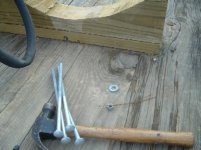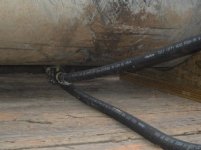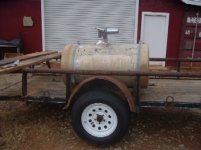Joe1
Platinum Member
I think you will find that when those 18 wheeler fuel tankers unload at your local station, they are grounded.
I know Diesel is not as dangerous as gasoline, all I'm saying he may want to check to see if there is a grounding issue; particularly in light of the fact that another poster commented that he might be consider a fuel transporter over 99 gallons.
I'm not shooting him down; I like his idea, but if he can avoid running afoul of the regulators and be safer to boot, it may be worth his while to investigate it.
I wish him luck on his project.
I know Diesel is not as dangerous as gasoline, all I'm saying he may want to check to see if there is a grounding issue; particularly in light of the fact that another poster commented that he might be consider a fuel transporter over 99 gallons.
I'm not shooting him down; I like his idea, but if he can avoid running afoul of the regulators and be safer to boot, it may be worth his while to investigate it.
I wish him luck on his project.


